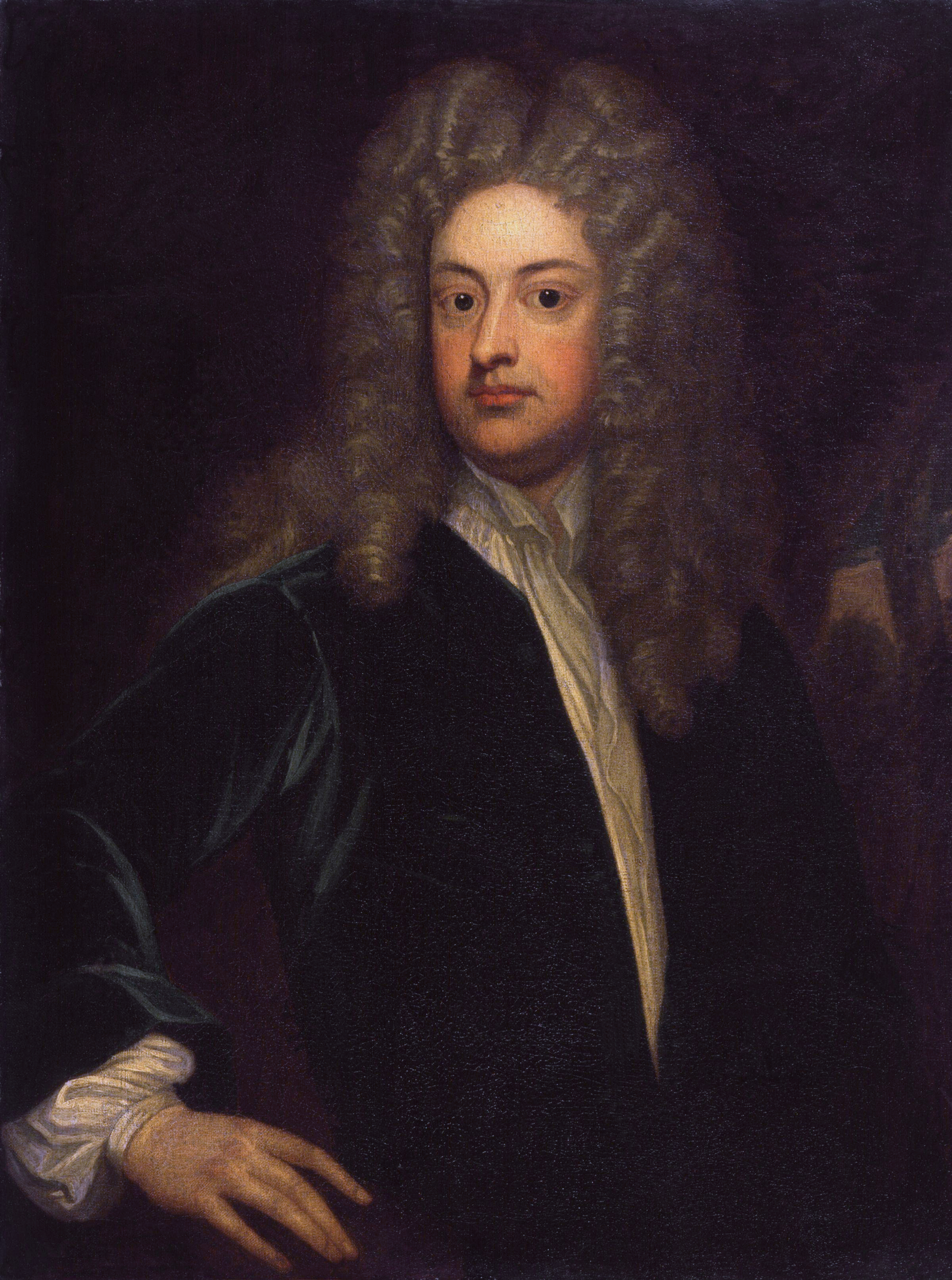William Temple, in "Heads Designed for an Essay on Conversation" in The Works of Sir William Temple, Bart. in Four Volumes (1757), Vol. III, p. 547.
Misattributed
Joseph Addison Quotes
“A day, an hour, of virtuous liberty
Is worth a whole eternity in bondage.”
Act II, scene i.
Cato, A Tragedy (1713)
Act I, scene i.
Cato, A Tragedy (1713)
No. 465, Ode (23 August 1712).
The Spectator (1711–1714)
“Health and cheerfulness mutually beget each other.”
No. 387 (24 May 1712).
The Spectator (1711–1714)
No. 465, Ode (23 August 1712).
The Spectator (1711–1714)
“Young men soon give and soon forget affronts;
Old age is slow in both.”
Act II, scene v.
Cato, A Tragedy (1713)
“We are always doing something for Posterity, but I would fain see Posterity do something for us.”
No. 587 (20 August 1714).
The Spectator (1711–1714)
Samuel Johnson in The Rambler, no. 50 (8 September 1750); many of Johnson's remarks have been attributed to Addison
Misattributed
No. 1 (1 March 1711).
The Spectator (1711–1714)
“Great Pompey's shade complains that we are slow,
And Scipio's ghost walks unavenged amongst us!”
Act II, scene i.
Cato, A Tragedy (1713)
“Nature does nothing without purpose or uselessly.”
Act V, scene i.
Cato, A Tragedy (1713)
“For ever singing as they shine,
The hand that made us is divine.”
Ode.
Bartlett's Familiar Quotations, 10th ed. (1919)
No. 117.
The Guardian (1713)
“Talk not of love: thou never knew'st its force.”
Act III, scene ii.
Cato, A Tragedy (1713)
“Tis pride, rank pride, and haughtiness of soul:
I think the Romans call it Stoicism.”
Act I, scene iv.
Cato, A Tragedy (1713)
Act I, scene iii.
Cato, A Tragedy (1713)
“What sculpture is to a block of marble, education is to the human soul.”
No. 215 (6 November 1711).
The Spectator (1711–1714)
No. 166 (10 September 1711).
The Spectator (1711–1714)
Act III, scene i.
Cato, A Tragedy (1713)
No. 249 (15 December 1711).
The Spectator (1711–1714)
Widely quoted as an Addison maxim this is actually by the American clergyman George Washington Burnap (1802-1859), published in Burnap's The Sphere and Duties of Woman : A Course of Lectures (1848), Lecture IV.
Misattributed
Act I, scene i.
Cato, A Tragedy (1713)
“Tis not in mortals to command success,
But we'll do more, Sempronius; we'll deserve it.”
Act I, scene ii.
Cato, A Tragedy (1713)
" The Life and Teachings of Thoth Hermes Trismegistus http://magdelene.net/Thoth%20Hermes%20Trismegistus.htm", in The Secret Teachings of All Ages (1928) by the Canadian occultist Manly Hall; a few quotation websites credit this to Addison.
Misattributed
No. 191 (9 October 1711).
The Spectator (1711–1714)
“I will indulge my sorrows, and give way
To all the pangs and fury of despair.”
Act IV, scene iii.
Cato, A Tragedy (1713)
No. 255 (22 December 1711).
The Spectator (1711–1714)
No. 256 (24 December 1711)
Often only the first half of this statement is quoted
The Spectator (1711–1714)
“From hence, let fierce contending nations know,
What dire effects from civil discord flow.”
Act V, scene iv.
Cato, A Tragedy (1713)
No. 256 (24 December 1711)
The Spectator (1711–1714)
No. 47 (24 April 1711).
The Spectator (1711–1714)
“Round-heads and Wooden-shoes are standing jokes.”
prologue, l. 8.
The Drummer (1716)
No. 412 (23 June 1712).
The Spectator (1711–1714)
“Modesty is not only an ornament, but also a guard to virtue.”
No. 231 (24 November 1711).
The Spectator (1711–1714)
No. 162 (5 September 1711).
The Spectator (1711–1714)
“Much might be said on both sides.”
No. 122 (20 July 1711).
The Spectator (1711–1714)
Variant: Much may be said on both sides.
No. 94 (18 June 1711).
The Spectator (1711–1714)
No. 224.
The Tatler (1711–1714)
No. 494 (26 September 1712).
The Spectator (1711–1714)
“Beauty soon grows familiar to the lover,
Fades in his eye, and palls upon the sense.”
Act I, scene iv.
Cato, A Tragedy (1713)
Act V, scene i.
Cato, A Tragedy (1713)
Cato, A Tragedy (1713)
Variant: "When love once pleads admission to our hearts..."
Act IV, scene i. The last line has often been misreported as "He who hesitates is lost", a sentiment inspired by it but not penned by Addison. See Paul F. Boller, Jr., and John George, They Never Said It: A Book of Fake Quotes, Misquotes, & Misleading Attributions (1989), p. 3.
